Sunday, March 15: The A.D.D. Detective
KINDLE 2
by Leigh Lundin
A year and a half ago when we tried to review the Kindle 1, we weren’t able to get our hands on the device so, to help make up for it, we brought our readers the latest news on the Wii and the oMyBod.
With the introduction of the Kindle 2, I renewed efforts to obtain a Kindle 2 for review. Step 1 was to reach someone in Amazon customer service, someone who cared to have the finest (if slightly bent) blog review.
In the book world, like the computer world, publishers want their product reviewed. If you’re a reviewer, a user group, or a literary society, they’ll be happy to send you books with the hopes you’ll like it and positively review it for your audience.
I’m a soft touch; rather than trot out a terrible review, I’d rather emulate New Englanders and refrain from mentioning the subject in question.
My first stop (and in fact my second and third stops) was to speak with Amazon’s reps in India– silly me, thinking that would be a quick way to get Amazon’s PR phone number, which is apparently highly classified. 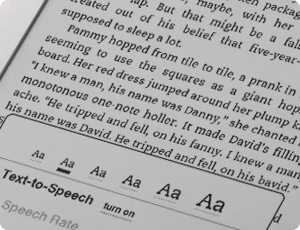 They kept routing me to Kindle tech support, which at first blush might not seem a bad start. There, a lady informed me that reviewers should purchase their own Kindles and a few starter books.
They kept routing me to Kindle tech support, which at first blush might not seem a bad start. There, a lady informed me that reviewers should purchase their own Kindles and a few starter books.
"Wait," I cried. "You suggest I spend $400, give or take, to review a Kindle 2 that will promote your company?"
"Well," she said defensively (notice how I violate all the ‘quote tags’ rules writers aren’t supposed to ignore), "you can return it if you don’t like it."
Not to be stymied, I was about to call either my public library or stock broker and ask them for Amazon corporate’s number, when one of their reps in India, Chakravarthi "You can call me Chad" Rajagopalachari[1], whispered their public relations number to me, but said, "Don’t tell anybody I told you."
Okay, it’s just our secret, 866-216-1072 (or 866-486-2360). Why the public relations phone number, especially the 800 number, of any company should be secret is beyond me, but there you have it.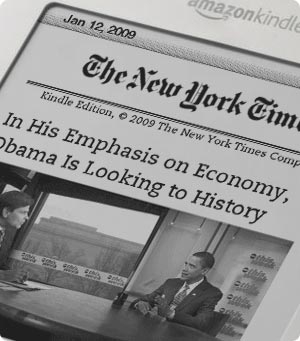
The Acid Drop Test
When I called that number, the guy said, "You’re whom?"
I wanted to say "James Lincoln Warren" and "It’s ‘who’, not ‘whom’," but I told him "Rob Lopresti." Surely, he’d surely heard of Rob after googling Lopresti’s last article?
"Whom?"
I explained that I’d like to review a Kindle 2 for Criminal Brief without maxing out a credit card.
"Are you the New Yorker?"
"No, I’m…"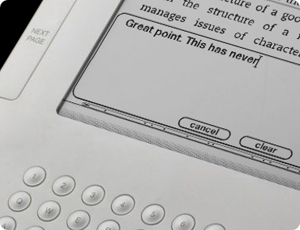
"Or the Atlantic Monthly?"
"No, but…"
He cut me short.
I wish he hadn’t done that. I’d expected tough challenges to my credentials and had all sorts of arguments prepared.
For example, were they to bring up the relative size of Criminal Brief and the matter of ‘statistics’, I was ready to point out CriminalBrief.com has a larger presence on the web, more letters in our URL (web address) than either Amazon.com or NYtimes.com. Unlike Amazon, which is caught in a conflict of interest, not every Tom, Dick, or Harry can review on Criminal Brief– Tom, Dick, and Sheena, yes, but not Tom, Dick, or Harry. I was about to mention Steve Steinbock has 35– count ’em– 35 messages in one blog and three or four longing women with heart palpitations (but don’t mess with The Wench!)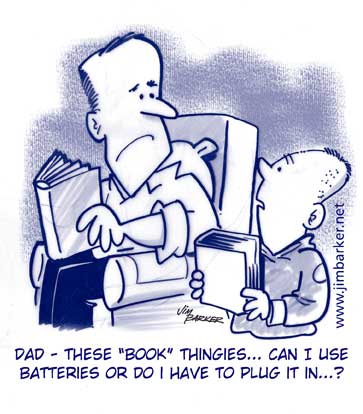
But no, I didn’t have a chance to try out these time-untested arguments. Sensing I might overwhelm him with masterly authority, he gave me an eMail address. (sigh) I followed through and I keep checking the post box waiting for its arrival any day now.
In the meantime, I’ll bring you the prototype review waiting in the wings. As far as I can make out, the Kindle 2 does not have iPhone support but iPhones will be able to read Kindle books. We also know it can talk which caused angst in the marketplace. Beyond that, we know this:
- The Kindle 2 has zero grams of trans-fat and zero calories.
- They are hand-picked from the finest California vines by legal but non-union workers.
- They contain less than the average amount of Chinese lead and melamine.
- Their flex-fuel hybrid engine meets EPA emissions requirements.
- Sleepiness and side-effects may occur.
- Consult your physician if symptoms persist.
- Not sold in stores.
Apparently The Onion had the same problem we did and wrote their own review.
The Drop Test
I hoped to address the issue of the ‘drop test’. The Kindle 1 was vulnerable to being dropped, as are most electronic devices, but Amazon was sensitive that the Kindle 1 could sustain a plummet of only, well, tens of millimeters. Surviving a drop became a priority with the Kindle 2. Amazon has video of the Kindle 2 falling from 3/4m or 2-1/2 feet. But I have a question or two: The slo-mo ballet video looks like the device is dropped on a mat, doesn’t it?
A mat?!! Hey, what kind of test is that? I’m a klutz and I can show you what real dropping is like. When I drop something, it’s not in slow motion and it’s not on a mat. My rules of droppage are:
- Liquids will be magnetically attracted to carpets, sofa cushions, and soft fabrics.
- Breakables avoid carpet, cushions, and are attracted to hard, unforgiving surfaces.
My device will accelerate 32 feet/second/second to solid concrete, brick, and– in once instance– parking lot pavement. (Did you know padded laptop bags don’t have padding around the edges? I learned that the hard way when a shoulder strap gave way. Oh, my poor Mac.) Sorry, Mr. Bezos, here’s your Kindle back and… oops, here’s the screen and we managed to find the scroll button.
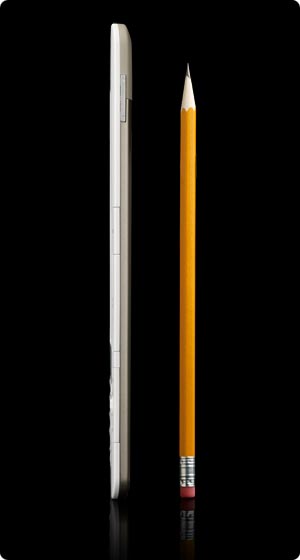 The Drop Price Test
The Drop Price Test
Whereas a good notebook computer can be had for $299, current high end readers run between $350-400. That’s a lot of spondulicks in any financial era, but this is a tough economy.
(Not according to a recent AOL poll, which has a fairly conservative audience. Their poll reported that while nearly 20% of respondents felt there was a severe economic crisis, almost 80% believed there was no crisis at all. The middle ground was virtually deserted.)
After you purchase your Kindle, you’re hit with $10 for each eBook, considerably more expensive than paperbacks. Here is a point most buyers miss:
You do not own a Kindle eBook. You spend $10 for the right to read an eBook, but you don’t own it. You can’t lend it, you can’t burn it, you can’t donate an eBook to your local library once you’ve read it. You pay more not to own a book than to own it.
When the original Kindle was released, some web sites predicted its quick demise and at least a few continue to do so. I suspect Amazon’s finances and marketing muscle has overcome inertia and demand seems to be ramping up, at least if you have lots of disposable income.
 Fujitsu Frontera is testing a $900 color reader, but I think they’re heading in the wrong direction. If Amazon puts economies of scale into place and brings the price down to less than a hundred dollars, demand should take off.
Fujitsu Frontera is testing a $900 color reader, but I think they’re heading in the wrong direction. If Amazon puts economies of scale into place and brings the price down to less than a hundred dollars, demand should take off.
Less than a C-note? Why not! The price of the hardware isn’t important, especially when it becomes outdated in eighteen months or so; the money resides in the eBooks themselves.
Inking a Deal
Consider computer printers: Epson, Lexmark, and Canon practically (and sometimes literally) give away printers because they know the money is in selling ink. A wag once calculated the price of ink in those tiny cartridges is well over $3000 per gallon! I was disappointed when our local Sir Speedy raised their per copy price from 2¢ a page to 10¢ a page, but it’s still a bargain compared to the 20¢ a sheet it costs me to print on my Lexmark.
The Kindle uses a technology they call ‘digital ink’, which I previously compared to an Etch-a-Sketch. While I agree they probably won’t be giving away Kindles any time soon, one day they’ll realize the real money is in the digital ink of their eBooks.
By then, Amazon will surely rush me one to review.
[1] In case you worried about Chakravarthi "You can call me Chad" Rajagopalachari, the real C. Rajagopalachari is a historical figure, not an Amazon operator.




















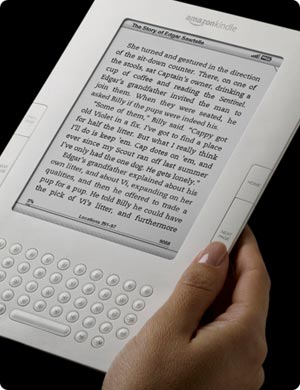
Thanks to Jim Barker from Scotland for the comic in the article. I met him at Bouchercon and now, I find a cartoon from him each Monday morning. Ladies, he is better looking that his cartoon image.
Well, you sure sold me. Can’t wait to get over to wherever it is you get over to if you want to buy a Kindle 2. Or do you recommend waiting for Kindle 3, 4 or 5?
I keep checking the post box waiting for it’s arrival any day now.
Leigh, my esteemed colleague, you just earned a Diction Court Summons for the illegal use of an apostrophe. (Maybe this is the missing apostrophe from Melodie’s column last this week and it somehow migrated here.) “It’s” is an abbreviation of “it is”, not the possessive form of “it”.
Regarding your weird insistence on using single quotation marks for words and phrases but double quotation marks for dialogue, which as you know drives me completely nuts and violates every style manual ever conceived, hell, I give up.
All of which only goes to show, it’s not about the device you read, it’s about content.
JLW — Leigh was probably just trying to even things out. For every apostrophe left out of an “it’s,” an extra apostrophe must be added to an “its” in order to balance out the total number of apostrophes in circulation at any one time. I think it’s Strunk’s Law, or maybe White’s — I forget.
Leigh, I’ve not yet taken the Kindle leap, but I plan to. Great column.
It took me awhile to get the meaning and decided (finally) I like holding a book. A real book.
The cartoon I did get. Batteries are always better (she says with a straight face).
The New York Times gave a pretty favorable review to the new Kindle. I would still rather hold a book in my hands and physically turn the page and feel the paper, and see how far I’m through it by virtue of where the bookmark sticks out. And if I hate the book I’m reading, I can always emulate Dorothy Parker by not lightly tossing it aside but throwing it with great force, something not an option with a Kindle unless one has padded walls.
Also, how do you browse an e-book to see if you’re interested in reading it or not?
But Leigh’s right. The real money is in selling virtual ink, kind of like selling virtual Brooklyn Bridges.
John said: Leigh was probably just trying to even things out. It’s an ancient principle of Germanic linguistics related to the “Rule of ‘S’ Conservation” in plural verbs. Naw, I just made that up. But I did employ proper use of quotation marks in American Standard typography.
>>I keep checking the post box waiting for it’s arrival any day now.
>Leigh, my esteemed colleague, you just earned a Diction Court Summons for the illegal use of an apostrophe.
I… I don’t know what possessed me. John’s right: apostrophes fall out of places where they should be and show up in others.
Once I knew where an error lurked in the article (or a bug as John and I might say), I kept trying to resist fixing it. Then I spotted a verb having a disagreement with a subject, and I couldn’t let that be. (sigh) I had to fix ’em. <== Hey! An apostrophe showed up!
Dick, I think the Kindle number that would appeal to me would be 29.95.
alisa… so bad! and funny!
I like the idea of Kindle, and of ebook readers in general. But I find Amazon’s cutthroat marketing approach pretty rotten.
As I said in my column a week or so back, Amazon permits the resale of everything, but has essentially banned the sale of second hand Kindle 1 devices. How do you spell “double standard”?
I was never a fan of the kindle. After reading your column, I continue a non-fan of the kindle.
I have been wondering where would I put all the books you can store on a kindle? Now, I learn this is not a problem because I wouldn’t own them anyway.